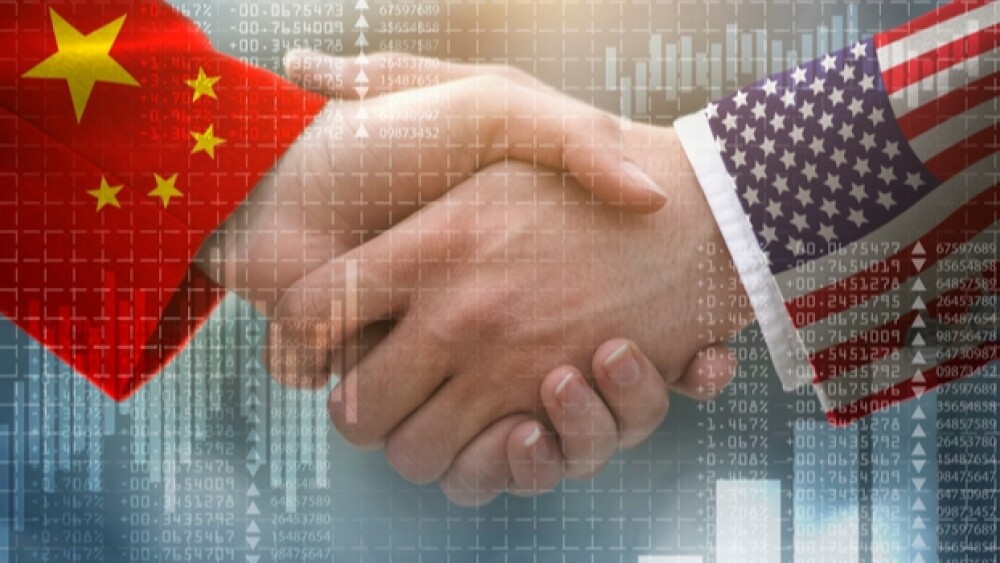The United States and China are reportedly close to an agreement that would allow the PCAOB to audit companies listed on the U.S. stock exchange, per the Wall Street Journal.
The United States and China are reportedly close to an agreement that would the U.S. Public Company Accounting Oversight Board (PCAOB) to audit Chinese companies listed on the U.S. stock exchange, according to the Wall Street Journal.
According to the new WSJ report, China’s securities regulators are working with the SEC to transfer their “audit working papers and other data from mainland China to Hong Kong.” At that point, PCAOB auditors would travel to Hong Kong to perform on-site inspections of the Chinese companies’ auditors and records.
WSJ sources claim that China’s regulators recently informed some accounting firms and relevant companies about the plan. In a WSJ query to the China Securities Regulatory Commission (CSRC), however, the publication was told it had no relevant information to disclose. The PCAOB also declined to comment.
In August, Erica Williams, chair of the PCAOB, said, “We have teams ready, bags packed and ready to go - if we have an agreement and make sure that what we have in the agreement on paper is actually working in practice.”
BioSpace reported in March that U.S. and Chinese regulators were getting closer to a cooperation plan. This appears to be edging even closer now, although this issue has been ongoing for 20 years. The New York Stock Exchange and Nasdaq have threatened Chinese companies with delisting if the Chinese government didn’t modify their audit access rules.
Chinese companies have been able to list on U.S. stock exchanges for about 20 years. Currently, 261 Chinese companies are listed on U.S. exchanges. As such, they are subject to U.S. rules regarding being listed, including allowing regulators to audit their books. Repeatedly, Beijing has denied auditors access.
To date, the SEC has placed 163 Chinese companies on a list as being provisionally or conclusively in violation of the Holding Foreign Companies Accountable Act (HFCAA), which was passed in 2020.
Biopharma Companies on the ListLegend Biotech switched to a U.S. auditor earlier this year. Their previous auditor was based in China but Legend is a foreign issuer domiciled in the Cayman Island.
Among the list of conclusively identified biopharma companies are BeiGene, Zai Lab, Hutchmed, CASI Pharmaceuticals, Connect Biopharma Holdings, Green Vision Biotechnology, Legend Biotech and Gracell Biotechnologies. Legend Biotech switched to a U.S. auditor earlier this year. Their previous auditor was based in China but Legend is a foreign issuer domiciled in the Cayman Island.
In mid-April, the Chinese Securities Regulatory Commission (CSRC) issued draft guidance that would allow U.S. auditors to examine U.S.-listed Chinese companies. The new guidance required overseas-listed companies and relevant securities service providers to disclose previously confidential documents in overseas offerings and listings.
At that time, the SEC had added 12 China-based companies to their delisting watchlist. These include Microvast, China Automotive Systems, Daqo New Energy Corp., Connect, OneConnect Financial Technology Co., Green Vision, Legend, Soahu.com Limited, Studio City International Holdings Limited, Melco Resorts & Entertainment Limited, Logiq and Noah Holdings.
BeiGene, Zai Lab, More Make Moves to Comply
In May, the SEC added more than 80 companies to the list. Over the last half year, a number of China-based biopharmaceutical companies were placed on the list, including BeiGene, Yum China, Zai Lab, ACM Research (Shanghai) and Hutchmed. But on April 11, BeiGene changed auditors for its New York listing from a Chinese company to a U.S.-based one to comply with U.S. law. Zai Lab was making a similar move, but it wasn’t clear if those changes would be enough to meet SEC requirements.
Sinovac Biotech reported in May that it became “aware that the company has been identified by the” SEC under the HFCAA on May 4, 2022. The company had previously disclosed that its auditor was in a jurisdiction that the SEC can’t fully inspect, which places it on the list.
Similarly, I-Mab announced in May it was aware it made the list after filing its annual report on April 29, “which included an audit report issued by a public accounting firm that the [PCAOB] has determined that it is unable to inspect completely.” The company indicated it was working to find a U.S.-based independent registered public accounting firm as its principal auditor that would allow inspections. I-Mab said it hoped to finish this in the second half of 2022, with the change of the auditing firm by the end of the year.
After the Enron accounting scandal, the U.S. enacted the 2002 Sarbanes-Oxley Act which requires all public companies to have their audits inspected by the PCAOB. However, China has refused access. The Trump Administration ratcheted up its efforts to enforce this, and the Biden administration has continued it.
Another major factor to delisting besides audit access is that the HFCAA requires foreign companies to disclose if they are government controlled. Since July 2021, the SEC has refused new stock listings from China. The SEC requires investors receive more information about shell companies, called “variable interest entities’ (VIEs) that Chinese companies create to list stock in New York. China has denied access alleging national security issues.





